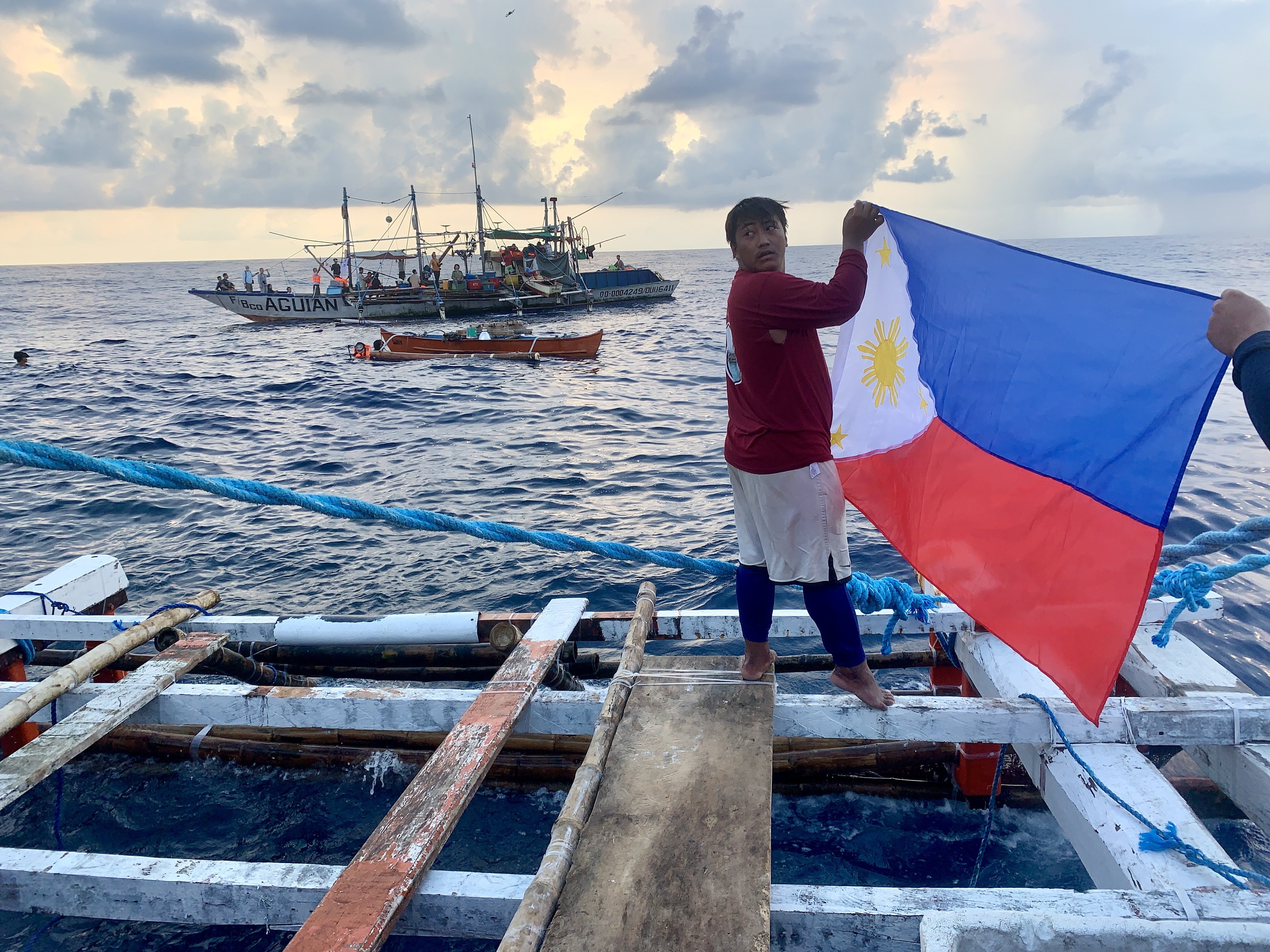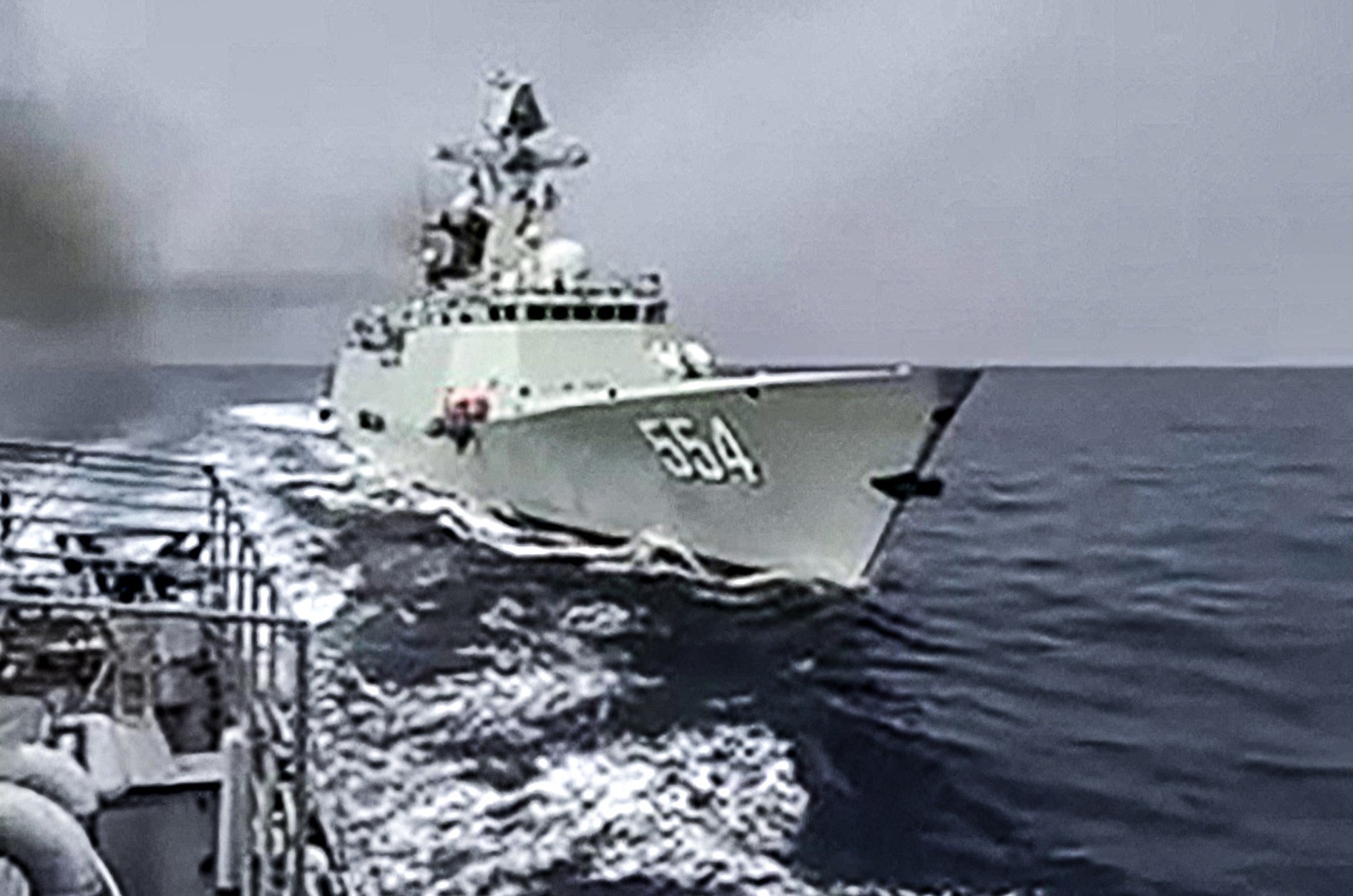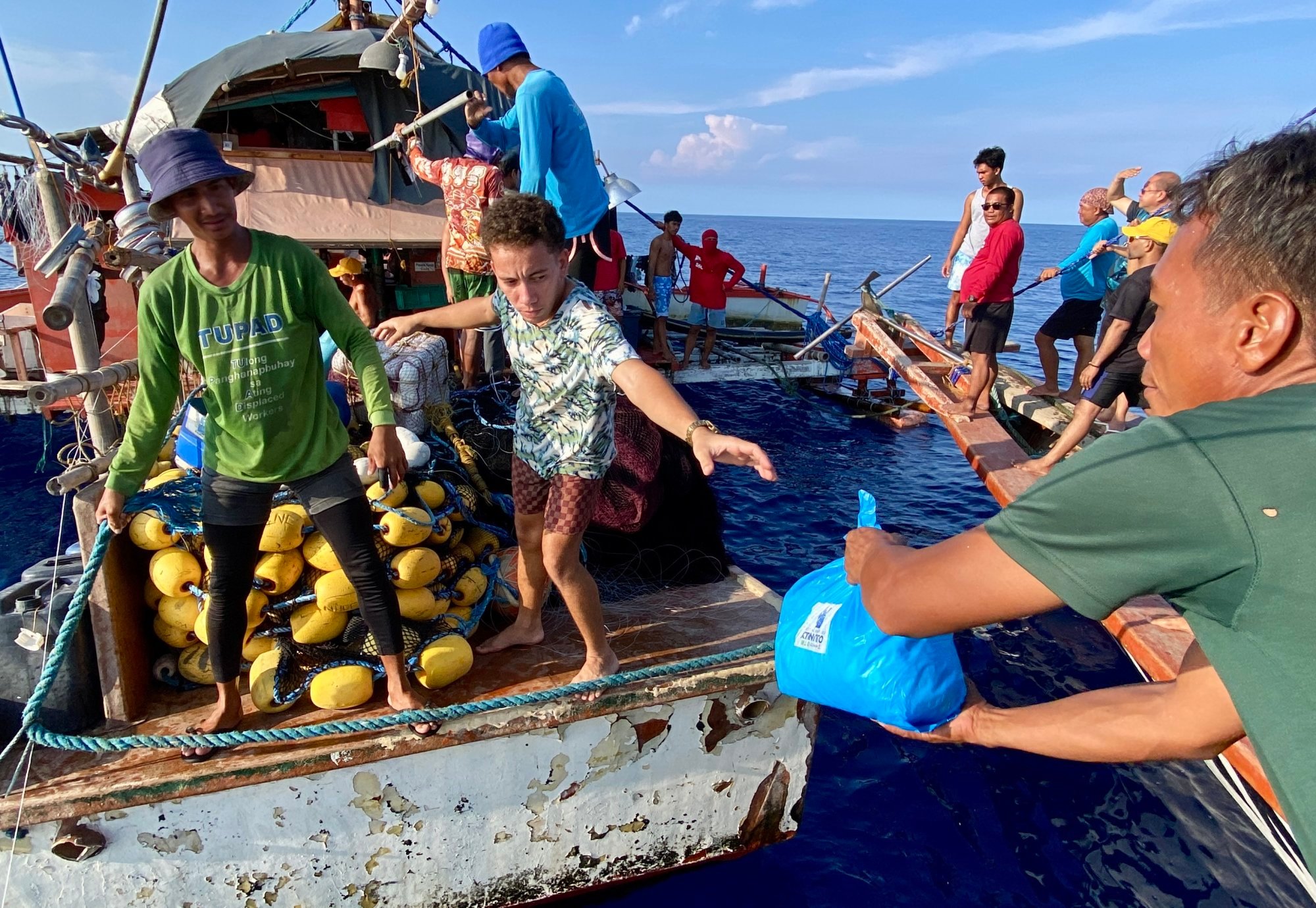The net tightens: how China squeezes Filipino fishers at Scarborough Shoal
A new report warns of China’s growing de facto control, as analysts say ‘grey-zone coercion’ is slowly by surely reshaping the South China Sea

From the decks of battered fishing boats, the struggle over Scarborough Shoal has entered a new, precarious phase.
As China steps up its patrols, Filipino fishers say they are being forced to abandon seas their families have plied for generations – raising fears that what’s unfolding at the reef could become the playbook for Beijing’s wider South China Sea ambitions.
The Chinese coastguard’s intensified enforcement of a controversial anti-trespassing law is the latest move in China’s campaign to tighten its hold over the rocky outcrop, located just 220km (137 miles) from the Philippines’ main island and squarely within Manila’s exclusive economic zone.
The warnings from fishers come as a fresh report by the Centre for Strategic and International Studies’ Asia Maritime Transparency Initiative, published on Monday, cautioned that China’s expanding footprint around Scarborough Shoal risks cementing its de facto control – raising the spectre of future miscalculations in these disputed waters.
Constant patrols by the Chinese coastguard have driven Filipino fishers as far as 40 nautical miles (74km) from the shoal, according to Leonardo Cuaresma, head of the New Masinloc Fishermen’s Association in Zambales.
“If we go beyond that, the Chinese coastguard will chase us or hit us with water cannons. Even our Philippine coastguard and the Bureau of Fisheries and Aquatic Resources vessels are also subjected to water cannons,” Cuaresma told This Week in Asia.
He attributes the escalation to Beijing’s law, introduced last year, which authorises the Chinese coastguard to detain foreign nationals for up to 60 days if found trespassing in waters China claims as its own.
Despite the risks, Philippine coastguard spokesman Commodore Jay Tarriela insists that coastguard patrols – accompanied by the media – have managed to reach the shoal itself.

Scarborough Shoal, known locally as Panatag Shoal, is one of several contested features that are the subject of overlapping claims by China, the Philippines, Vietnam, Malaysia and others in the South China Sea: a vital waterway that has fuelled decades of maritime friction.
In 2016, an international tribunal ruled that China’s expansive claims to the waterway were invalid, but Beijing rejected the verdict, instead accelerating its presence through artificial island-building, military deployments and increasingly assertive coastguard patrols.
Scarborough Shoal has remained a persistent flashpoint since China seized control in 2012 after a tense naval stand-off. Until recently, Filipino fishers say small boats were generally permitted to enter the shoal’s central lagoon, although larger vessels were often kept at bay.
If no red lines are enforced, Beijing may eventually consider permanent infrastructureSylwia Monika Gorska, political analyst
But tensions have escalated in recent months. Chinese coastguard patrols near Scarborough averaged 95 days per month between January and May 2025 – almost double the 48 days recorded in the previous five months, according to the US-based Asia Maritime Transparency Initiative. Philippine patrols also rose, from 21 to 31 days monthly.
The initiative’s report also noted a dramatic increase in confrontations, including repeated use of water cannons and aerial challenges. It warned that sustained tensions, coupled with the Philippines’ Mutual Defence Treaty with the US, risked triggering an accidental escalation.
On Friday, China’s coastguard said it took “necessary” measures, including shouting and firing water cannon, to “expel” a Philippine ship which it said “insisted” on “intruding” into waters around the Scarborough Shoal.
China’s behaviour around Scarborough Shoal is a case study in “grey-zone coercion”, according to Sylwia Monika Gorska, a political analyst with a doctorate in international relations from the University of Central Lancashire.

She was referring to the term for an indirect strategy whereby one party gradually extends control through non-military means, avoiding overt moves like land reclamation or permanent construction that might provoke a stronger international backlash.
Gorska said Beijing was carefully testing regional tolerance and deliberately holding off from actions that would trigger a stronger diplomatic or military response.
But if left unchecked, China’s incremental enforcement could not only cement its grip over disputed maritime areas but also “undermine regional norms on dispute resolution and non-coercive behaviour”, she warned.
Aldrin Alba, a legal analyst at the Political Economic Elemental Researchers and Strategists think tank, argues that the situation now constitutes “effective occupation” – a legal term for a state’s firm control over territory it claims.
“It also involves the implementation of laws, exercising jurisdiction and governance in the specific area by the claimant state,” he told This Week in Asia. “All the elements of effective occupation are being done by China. Therefore, we can conclude that their action can now be called an effective occupation.”
To push back, Alba said Manila should take the initiative and work on forging multilateral cooperation with Southeast Asian neighbours to prevent China from consolidating its position.
Alba contends that Beijing’s assertiveness in the West Philippine Sea, Manila’s name for those parts of the South China Sea it claims, amounts to a calculated bet that, over time, its actions will gain tacit acceptance from other countries.
Chris Gardiner, CEO of the Institute for Regional Security, called China’s approach “tactical incrementalism” – the slow but steady accumulation of steps to bolster its maritime claims.
“The tightening of Filipino fishing restrictions is part of its gradual consolidation of control,” Gardiner told This Week in Asia.
He suggested that Manila’s diplomatic strategy should prioritise securing guarantees against the militarisation of Scarborough Shoal, as well as negotiated access for Filipino fishers backed by credible deterrence.
“Given the disparity in military power, defence of Filipino rights will need the support of allies and partners like the US, Japan and Australia,” Gardiner said.
Gorska, meanwhile, warned that China’s creeping control risked reshaping the strategic order of the South China Sea in its favour.
“If unopposed, this de facto control may become entrenched, making it far more difficult for the Philippines to reassert access or maritime rights, even without formal territorial claims being internationally recognised,” she said.

She pointed to satellite images showing Chinese H-6 bombers operating near Scarborough Shoal as a signal of Beijing’s long-term intentions.
“This signals capability – and intent,” Gorska said. “If no red lines are enforced, Beijing may eventually consider permanent infrastructure, echoing its previous moves in the Spratlys. That would likely provoke a strong regional response.”
She also highlighted the environmental and economic costs of China’s presence, from degraded reefs to declining livelihoods for coastal communities.
“Prolonged exclusion from traditional fishing grounds could mean lasting harm to livelihoods and food security,” she said.
Should China cement its control over Scarborough Shoal, Gorska warned, the same tactics could be deployed at other flashpoints, including Second Thomas Shoal.
“The stakes go beyond Scarborough,” she said. “It raises a broader question of whether persistent unilateral actions can reshape norms in the absence of firm diplomatic or legal resistance.”
Additional reporting by Reuters